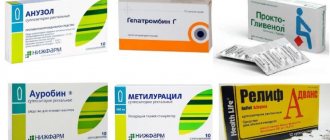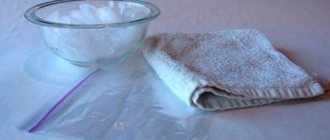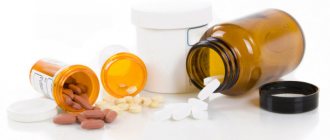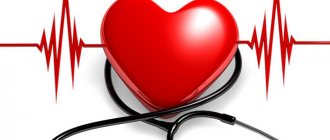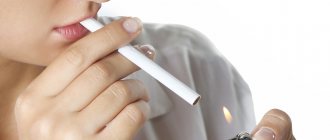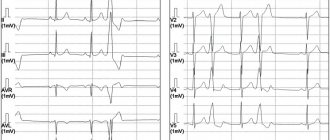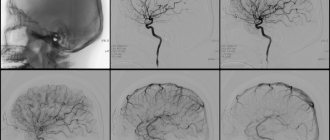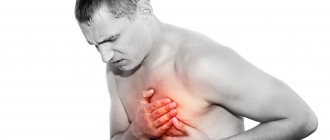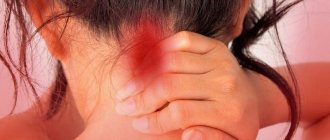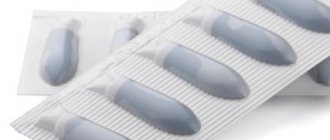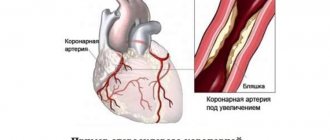All articles
Postpartum hemorrhoids
14.09.2017
Hemorrhoids often develop during pregnancy and even more often occur after childbirth. According to research, about 35 percent of women who have recently given birth experience its symptoms.
With hemorrhoids, the vessels that are located in the anal canal at the exit from the rectum become inflamed and swollen. Signs of the disease include rectal bleeding, pain and itching, prolapse of hemorrhoids from the anal canal and involuntary soiling of underwear.
If you notice bleeding or the pain increases significantly, be sure to consult a doctor to clarify the diagnosis and receive the correct treatment.
The most important risk factor for hemorrhoids is constipation.
Moreover, hard stools worsen the symptoms of the disease. Therefore, soft and regular stools are needed both for the prevention and treatment of hemorrhoids (as well as anal fissures). To do this, doctors advise:
There are foods that contain a lot of fiber (dietary fiber)
Vegetables and fruits, legumes and whole grain flour products are suitable. For example, prunes, apples, bran bread, boiled lentils. The recommended amount of fiber is 20-35 grams per day. Product packaging often indicates how much fiber it contains.
Drink enough water
Focus on thirst, since there are no exact recommendations, but according to rough estimates, men should drink about 3.7 liters of fluid per day, and women - about 2.7 liters. We are talking about any liquid. Juice, coffee and tea also count, as does the water contained in food.
Be active
Do suitable exercises, such as swimming or yoga.
There are several other ways to cope with the symptoms of hemorrhoids without seeing a doctor:
- Use damp toilet paper and then gently blot with a dry cloth (do not rub) to relieve pain. You can simply wet plain paper or use a hygienic shower or bidet.
- Take a warm bath without soap, foam or other additives for 10-15 minutes two to three times a day. Baths improve blood circulation and relax the muscles of the anus.
- Apply cold compresses. To do this, soak a piece of clean cloth in ice water, wring it out and apply it to the sore spot.
- Do Kegel exercises. They should help with involuntary soiling of laundry.
During pregnancy and breastfeeding, the use of any medications (including vitamins and dietary supplements) should be discussed with your doctor.
The reasons for this phenomenon
Before prescribing treatment, it is necessary to find out the causes of this pathology. Some believe that hemorrhoids occur due to childbirth itself. However, it is not. Inflammation of hemorrhoidal nodes is a chronic disease that can be aggravated under the influence of certain factors. Hemorrhoids after childbirth can occur during the period of pushing, when the woman’s nodes fall out.
The main reason for the exacerbation in this case is overstrain of the perineal muscles, as a result of which the blood vessels begin to be compressed. After giving birth, a woman faces the question: how to cure this unpleasant phenomenon, preferably without surgery, and how to prevent relapses?
Features of symptoms
Before you begin treatment without surgery, you need to know exactly how inflammation of the nodes manifests itself during breastfeeding. Hemorrhoids after childbirth are characterized by the following symptoms:
- Sensation of a foreign body in the anus;
- frequent urge to defecate;
- feeling of heaviness in the anus;
- itching and burning of the anal area;
- painful sensations during defecation;
- bloody discharge and the presence of mucus in the stool;
- bleeding;
- prolapse of hemorrhoidal nodes.
All of these conditions need to be treated quickly. It is worth noting that this pathology during breastfeeding can be both acute and chronic.
Why is constipation dangerous during breastfeeding?
Deterioration of intestinal function negatively affects a woman’s physical condition. Bloating and heaviness appear in the abdomen, and appetite decreases. Constipation may cause sleep disturbances, headaches, increased nervousness and decreased performance.
In addition, with constipation during lactation, fewer digestive enzymes enter breast milk, which also affects the baby’s stool. In some cases, delayed bowel movements can cause a reduction in breast milk production.
To normalize intestinal function, it is necessary to reconsider the daily diet and physical activity regime.
Features of the acute stage
Hemorrhoids after childbirth in the acute stage lie in wait for many young mothers. However, inflammation cannot develop out of the blue, so most often genetically predisposed women suffer from this. Hemorrhoids after childbirth can begin directly in the maternity hospital, or maybe during breastfeeding. The patient feels pain in the perineum, but may attribute these symptoms to postpartum injuries and not begin treatment in time. If you do not begin to treat such a disease, you can bring its development to surgery.
Hemorrhoids after childbirth of the acute type are usually external in nature. This means that the nodes become inflamed only in the anal area. This pathology is much easier to treat than an internal disease (as a rule, therapy takes place without surgery). When breastfeeding, an acute form of pathology can occur in the following cases:
- overstrain of the pelvic organs;
- the patient is overweight;
- constant constipation (after childbirth, intestinal motility is quite low, so problems with stool during this period are common).
If this phenomenon is detected during breastfeeding and immediately after childbirth, it is important to contact a specialist as soon as possible who will help you get rid of this inflammation and prescribe adequate treatment. If the patient does not pay attention to her condition or tries to treat the pathology at home, the malaise will become chronic, and then it will often be possible to help the woman remove the nodes only through surgery.
Herbal medicine for constipation
Herbal medicines demonstrate a good effect in the fight against constipation. During breastfeeding, you can take herbal products and herbal decoctions that do not have a negative effect on the quality of breast milk. These include decoctions based on:
- Gooseberry . Pour a tablespoon of berries into a glass of water and boil for 10 minutes. Strain the finished broth. Drink ¼ glass a day.
- Cumin, fennel and anise . The seeds of these plants stimulate milk production, as well as the functioning of the gastrointestinal tract. Two tablespoons of the seeds of each plant need to be mixed and poured with boiling water. Let it brew for half an hour. Take on an empty stomach 30 minutes before meals.
- Figs (with milk). Dried figs (2 tablespoons) need to be poured with a glass of boiled milk or water. You need to let the broth cool and drink a tablespoon 3 times a day.
Unfortunately, diet correction is not always enough to normalize the bowel movement process. As an additional supportive and preventive measure, it is recommended to take special supplements. For example, a ready-made herbal preparation “Fitomucil Norm” can help a nursing mother with constipation. It does not contain senna or synthetic components, so it is approved for use during pregnancy and lactation.
The product acts very delicately, does not provoke cramps and abdominal pain, and does not cause bloating. Soluble and insoluble plant fibers that make up the drug stimulate intestinal function and help cleanse it.
Before you start taking any medications or using traditional methods to relieve constipation, you should consult your doctor.
Features of the chronic stage
Getting rid of chronic pathology is much more difficult; sometimes a specialist may resort to surgery. This inflammation is characterized by exacerbation and remission. An exacerbation phase may occur in a woman in the following cases:
- stressful situations (this often happens to young mothers);
- constipation (some women are afraid of defecation due to its painful sensations with this disease);
- poor nutrition;
- sedentary time (during childbirth, genital ruptures are possible, which is why patients are forced to spend most of their time in a supine position).
Treatment depends on the stage of the pathology. So, at the first stage the patient practically does not feel any discomfort. Exacerbations begin, and the patient may complain of a feeling of itching in the anus, bloody discharge that comes out along with the feces. It is at this stage that effective drug treatment must be prescribed in order to avoid surgery.
At the second stage, unpleasant phenomena begin to progress. The patient experiences pain in a sitting position, as well as sharp painful sensations during bowel movements. In the final stages, periodic bleeding occurs, even not associated with bowel movements. Treatment in this case consists of complex drug treatment and surgery, since other methods are sometimes ineffective.
Drinking regime
An important point in the fight against constipation in mothers is maintaining a normal drinking regime. Experts recommend drinking at least 1.5–2 liters of clean drinking water per day. In addition to water, you can drink rosehip decoction, berry compotes, and chicory.
For additional stimulation of the intestines, it is advisable to drink a glass of water on an empty stomach in the morning, and also 20-30 minutes before each meal.
It is best to drink water in small portions throughout the day. For example, it is good to take a few sips of water when you first feel hungry. This technique will help quench thirst, which many people mistake for hunger.
Features of therapy
At the initial stages of the development of postpartum inflammation, conservative methods are used, which may include the following:
- use of candles. Rectal suppositories are the most common means by which both acute and chronic pathologies can be eliminated. Modern suppositories contain extracts of medicinal herbs, as well as painkillers.
- Ointments. If the inflammation is external in nature, special ointments are used that act directly on the source of the pathology. Modern drugs promote rapid healing of perineal cracks.
- Homeopathic remedies. Since many medications are often contraindicated for a woman after childbirth, since their components can pass into milk, homeopathic therapy is most often prescribed. We are talking about candles that contain such harmless ingredients as tea tree oil, calendula extract, chamomile and other herbs. Before starting to use such products, a woman should definitely consult a proctologist, since some such products can cause an allergic reaction.
- Drugs with a laxative effect. This ailment is very often accompanied by constipation, which interferes with a quick recovery. To facilitate the act of defecation, medications containing lactulose may be prescribed. This substance does not cause diarrhea, but helps normalize stool.
- Microclysters made from a decoction of herbs with healing properties also have a good effect.
If there is no desired effect, the proctologist advises the patient to prepare for surgery. With conservative therapy, a large number of medications are prescribed, which can harm the nursing mother. In this case, excision of the nodes is performed under general anesthesia. The ligation technique is considered the most modern type of therapy. During this operation, latex clamps are applied to the base of the knot. After this, the dying hemorrhoidal node disappears on its own.
Nutrition for constipation in nursing mothers
Very often, correcting the diet is enough to eliminate constipation in a nursing mother. A nutritious, balanced diet is the key to successful breastfeeding and the well-being of the woman and baby. You should not get carried away with fried, salted, smoked and peppered foods. Carbonated drinks, strong tea and coffee are prohibited. It is important to consume flour, confectionery, and sweets in minimal quantities.
It is better to heat-process vegetables and fruits: stew, bake, boil. Raw fruits complicate the digestion process, take longer to digest and often lead to increased gas formation. In addition, they can negatively affect the baby’s health - cause colic, allergic reactions, and anxiety.
Foods rich in fiber and recommended for consumption by a nursing mother:
- dried fruits;
- boiled carrots or beets;
- freshly squeezed vegetable and fruit juices;
- low-fat fermented milk products;
- porridge from gray and brown cereals.
It is better to introduce new products one at a time, with caution. It is necessary to monitor the child’s reactions and if he develops an allergy, refuse the new dish and consult a doctor.
The issue of getting rid of constipation should be approached comprehensively. First of all, it is necessary to reduce the amount of fatty protein foods consumed and include fresh vegetables and fruits in the diet. For chronic problems with bowel movements, it is important to understand what foods can be eaten for constipation, and what foods a nursing mother should avoid.
| Authorized Products | Prohibited Products |
| Ryazhenka, kefir, yogurt and other fermented milk products | Whole milk, black tea, coffee beans |
| Unrefined vegetable oils: olive, sunflower, flaxseed | Pasta, pastries, brown bread |
| Dried fruits: figs, dried apricots, prunes | Boiled eggs, mashed potatoes |
| Herbal infusions: cumin, anise, fennel | Chocolate, cocoa, jelly, sweet carbonated drinks |
| Freshly squeezed fruit and vegetable juices, berry fruit drinks | Sour apples, grape juice, eggplants, firm pears |
| Boiled, stewed or baked vegetables: carrots, beets | Radish, garlic, onion, radish |
| Lean meats, fatty salted fish (in small quantities) | Fatty meats, rich meat broths |
| Baked goods made from wholemeal flour, bran | Dryers, crackers, industrial confectionery products |
| Oatmeal, buckwheat, millet porridge | Rice, semolina, beans, peas |
Poor nutrition during breastfeeding is usually due to the fact that women are afraid to introduce fruits and vegetables into their diet. Because it is believed that these products may cause allergies or discomfort in the child’s intestines. But doctors believe that eating foods grown in your native region and properly prepared will not harm the baby. During lactation, it is advisable to give up only exotic fruits and legumes.
The daily diet must include first courses in low-fat broth, porridge in water or milk with the addition of butter, baked or stewed main courses of meat, poultry, and fish. You can often eat salads with a dressing based on vegetable oils. Dried fruits, light mousses, and fruit purees are suitable as a snack or dessert.
Berries have a beneficial effect on the mother's intestinal function, but they should be introduced into the diet with caution, observing a possible allergic reaction in the child. Common allergens also include red fish and caviar, honey, citrus fruits - they may be recommended for nutrition for a nursing mother, but provoke allergic reactions in the child.
Keeping a food diary will help not only improve bowel movements, but also find out the possible causes of skin reactions in the baby, and therefore create an appropriate diet.
Get rid of intestinal problems
The natural British drug is not addictive and works immediately
Find Phytomucil with benefits
